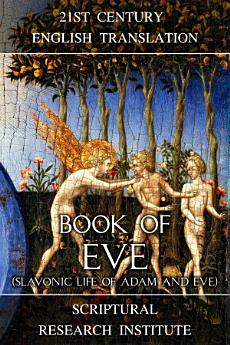Book of Eve
Über dieses E-Book
The Book of Eve is by far the shortest surviving version of the Life of Adam and Eve, and most of its contents are also told in the Latin and Armenian versions, however, from the opposite view. In the Latin Life of Adam and Eve and Armenian Penitence of Adam, Eve is tricked a second time by the devil, who has come to her disguised as an angel, however, in the Book of Eve, she recognizes the devil and ignores him. This is the exact opposite of what the Latin and Armenian versions report, and this opposing viewpoint is also found when Eve asks Adam to kill her in the Latin and Armenian version, but in the Slavonic versions, it is Adam who brought up the question of killing Eve.
The obvious conclusion is that someone decided to redact an older Latin or Armenian version of the Life of Adam and Eve, and created the Book of Eve, a version in which Eve was more heroic, however, this cannot be the case. The Book of Eve includes the name of the angel Ioil, which appears to be derived from the Apocalypse of Moses' Jael, however, the stories in the Book of Eve are not in the Apocalypse of Moses. Additionally, the Book of Eve includes a transliteration of the word Elohim, a word not found in any of the other surviving translations. The presence of the word Elohim confirms that the Book of Eve was translated from a Semitic source, and, that the 'powers' in the Latin and Armenian versions were originally Elohim in the Semitic version.











